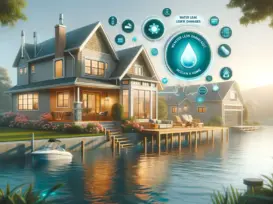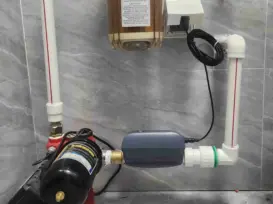Grus Home Energy - Water Damage
Understanding and Tackling Water Damage: Effective Strategies for Home Restoration
Understanding and Tackling Water Damage: Effective Strategies for Home Restoration
Water damage can strike a home at any time and for a multitude of reasons, including burst pipes, heavy rainfall, flooding, or appliance failures. While the immediate aftermath can be overwhelming, understanding the steps to tackle and restore water damage effectively can help homeowners manage the situation with precision and prevent further damage.
Firstly, it is crucial to identify the source of the water damage. If the cause is an internal issue such as a burst pipe, shut off the main water supply to the house immediately. For external sources like flooding, ensure safety first and wait until the water recedes or until it is safe to begin mitigation measures.
Once the source is contained, assessing the extent of the damage is the next step. Water can seep into drywall, flooring, furniture, and even the structure of the house, causing both visible and hidden damage. At this stage, it’s advisable to document all damages for insurance purposes. Take photographs and videos of the affected areas, and list all damaged items and structural elements.
The most critical stage in addressing water damage is the drying process. Time is of the essence; the longer materials remain wet, the greater the risk of mold and further deterioration. Use fans, dehumidifiers, and natural ventilation to aid in drying out the rooms. If the damage is extensive, it may be wise to hire a professional restoration company that can bring in industrial-grade equipment and expertise.
Removing standing water is equally important. Depending on the water level, you might use buckets, wet-dry vacuums, or pumps. It’s important to wear protective gear such as gloves, masks, and rubber boots to avoid any contact with potentially contaminated water.
If water has affected electrical systems, turn off the power to the affected areas at the breaker box and consult with an electrician before turning it back on. Safety must always come first, as water and electricity are a dangerous combination.
After the water is removed, and the area is dry, cleaning and disinfecting are necessary to prevent mold and eliminate any bacteria or pathogens that may have been present in the water, especially if it was from a non-clean source like a sewer backup or floodwater. Use appropriate cleaners and disinfectants on all affected surfaces.
The next phase is the repair and restoration process. Drywall, insulation, and carpeting that have been soaked may need to be removed and replaced. Structural repairs may also be needed, depending on the severity of the damage. This is where a professional restoration service can be invaluable, as they can assess the integrity of the structure and materials and provide skilled repairs.
In parallel with restoration, it’s also a good time to consider preventative measures for the future. This can include installing a sump pump, updating your home’s plumbing, improving drainage around your property, or even landscaping alterations to direct water away from the foundation.
Lastly, communicate with your insurance company throughout the process. They can guide you on the coverage specifics and may also recommend certified water damage restoration professionals.
In conclusion, while water damage can be a stressful and challenging ordeal, a methodical approach to identifying the problem, drying out the affected area, cleaning, and restoring your home can greatly mitigate the harm and get your living space back to normal. By taking swift action and considering professional help when necessary, homeowners can navigate through a water damage crisis with confidence and effectiveness.
©2025 All Rights Reserved. Grus IoT Co.,Ltd.

